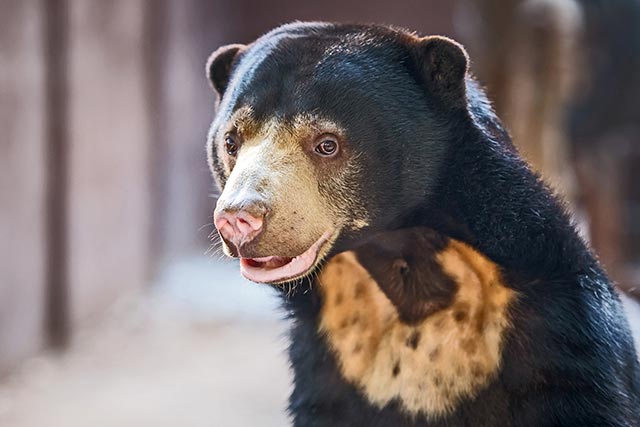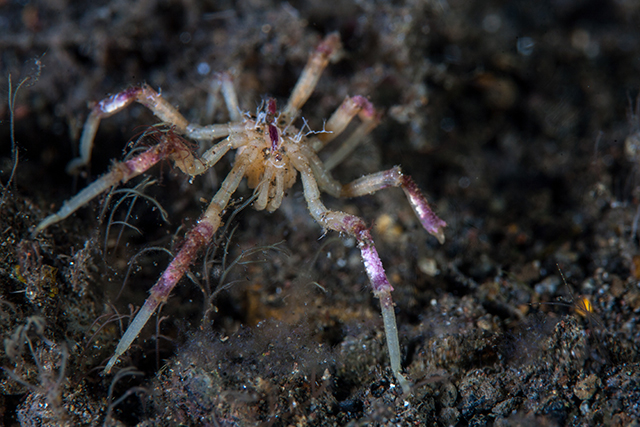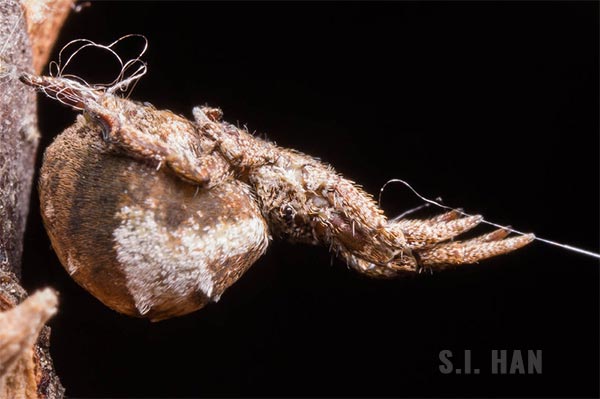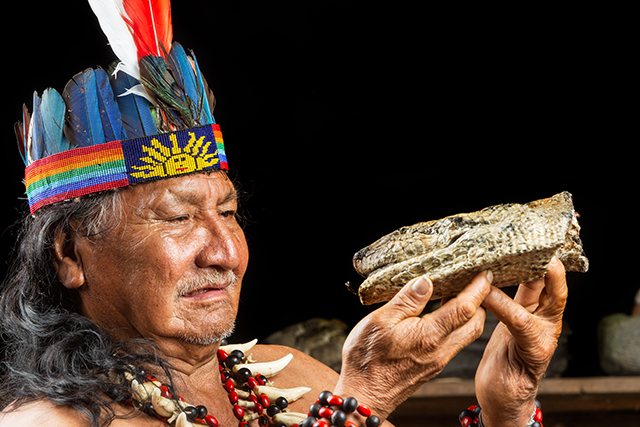Why does this 8-inch tarantula and her tiny frog sidekick live together?
11/29/2019 / By Edsel Cook

Humans often keep dogs as pets to protect their homes and family from intruders. Likewise, a South American species of burrowing tarantula keeps a tiny frog to protect its eggs and young spawn from small insects. In turn, the spider protects the frog from predators.
Photographs taken by Italian researcher Emanuele Biggi featured an individual specimen of Colombian lesserblack tarantula (Xenesthis immanis). The mammoth spider spanned eight inches (20 cm) from leg to leg.
This species of tarantula is big and vicious enough to hunt small lizards and frogs. In one of the photos, the hulking spider killed an Amazon sheep frog (Hamptophryne boliviana) and hauled the meal back to its nest for its swarm of younglings, which tore into the dead amphibian with relish.
However, the same tarantula and its babies appeared alongside a dotted humming frog (Chiasmocleis ventrimaculata). Despite being utterly dwarfed by the tarantula and outnumbered by the babies, the frog didn’t show any signs of fear.
Researchers believe that the tarantula and the frog enjoy a beneficial relationship. They live in the same burrow and watch each other’s backs. The spider deals with any big threats while the frog eats the ants and other insects that are too small for its partner to deal with. (Related: Natural remedies: Pets help relieve anxiety in children.)
A tale of a Peruvian tarantula, her kids and her “pet” frog
Italian researcher Emanuele Biggi holds wildlife shows in his homeland. He snapped the photos of the tarantula and its frog buddy during a recent trip to the Peruvian rainforest at the foot of the Andes Mountains.
Biggi expressed his delight at having come across an adult female spider that shared its home with its spawn and more than one humming frog. He described the specimen as one of the biggest Colombian lesserblack tarantulas he had ever seen.
Further, he recorded an instance where frogs and spiders emerged from the same burrow, which he called amazing.
“I’d heard of the phenomena of spiders and frogs living together before, but I was still surprised to see it right in front of me,” explained Biggi. “Nobody has ever seen these two particular species co-habiting like this before.”
Biggi did everything possible to take the stunning photos of the huge spiders and their tiny pet frogs. He approached the tarantula burrow before dusk, lay down on the ground, and waited for night to fall.
Is it commensalism or mutualism?
Eventually, the humming frogs came out of the burrow, much like how dogs always precede their human owners. On their heels came a bunch of young spiders. Finally, the adult Colombian lesserblack tarantula emerged.
Biggi and his colleagues took photos of the tarantulas hunting a cockroach and other frogs. However, neither the big spider nor its offspring attempted to catch and eat the humming frog.
“The photos show how the frogs or the spiders even passed very close to each other without any trouble,” explained Biggi. “The frog is surely protected by the presence of this huge spider around, while we suspect that the frogs also give a help to the spider by keeping ants and spider’s parasite flies at bay into the burrow – but this is still to be scientifically proven.”
Experts are divided on the exact nature of the link between the tarantula and the frog. Some say the two animals have a commensal relationship where they both benefit from working together, but do not entirely depend on each other. Others say the relationship may be heading toward mutualism, where the two different species rely on each other.
Sources include:
Tagged Under: amphibians, animal behavior, animals, arachnids, cool science, Ecology, frogs, research, spiders, tarantula, weird science, wildlife
RECENT NEWS & ARTICLES
COPYRIGHT © 2017 WEIRDSCIENCENEWS.COM
All content posted on this site is protected under Free Speech. WeirdScienceNews.com is not responsible for content written by contributing authors. The information on this site is provided for educational and entertainment purposes only. It is not intended as a substitute for professional advice of any kind. WeirdScienceNews.com assumes no responsibility for the use or misuse of this material. All trademarks, registered trademarks and service marks mentioned on this site are the property of their respective owners.


















